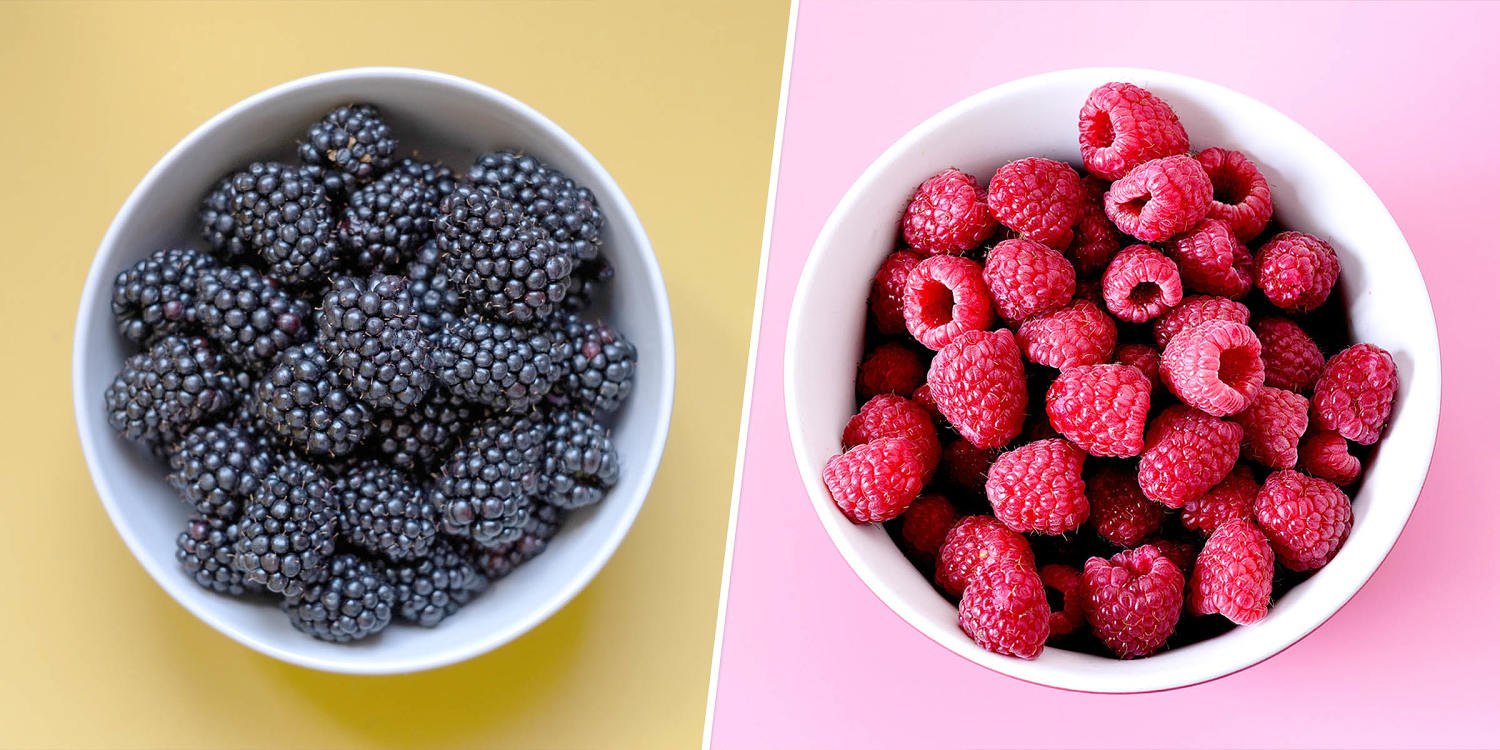Naturally sweet and colorful, raspberries and blackberries are crowd pleasers — and . Both are packed with fiber, vitamins, minerals and antioxidants, and they'll give you a boost in protein, too. But if you have to choose just one, do raspberries or blackberries come out on top? It's a tough question to answer because the truth is that all berries are great for you.
“ to the daily diet,” Natalie Rizzo, nutrition editor at TODAY, said previously. “Personally, I always have frozen berries in my freezer, and my kids love eating them as a snack.” And while raspberries and blackberries provide similar levels of nutrition, there are some differences that might tip you towards one berry or the other.

In one cup of raw , you'll find: One cup of raw provides: The fiber in these berries is especially beneficial, considering most adults in the U.S. aren’t getting enough fiber in their diets.
Fiber is necessary for proper digestion, but also aids in many other bodily functions, including weight management, heart health and blood sugar control. Emerging research suggests these properties also But, with a whopping 8 grams of fiber per cup, raspberries have an edge here. In fact, raspberries are considered the highest whole-food source of fiber out there, dietitians told TODAY.
com previously. When folks are looking to add more fiber to their diet, Caroline Susie, a registered dietitian and spokesperson for the Academy of Nutrition and Dietetics, tells them to start with raspberries. "The easiest thing to do is go buy a ton of raspberries, put them in your fridge and have half a cup with breakfast and have half a cup as an afternoon snack,” she told TODAY.
com previously. That said, with 7 grams of fiber per cup, blackberries aren't far behind. So, while raspberries have slightly more fiber than blackberries, you can consider both of these fruits great sources of this gut-healthy nutrient.
Berries are not a major source of protein, but with a few grams here and there, they can help you meet your overall daily protein goals. Raspberries and blackberries contain very similar amounts of protein, but blackberries are the winner here, with 2 grams per cup. That may not sound like much, but it was enough to get blackberries a spot on our list of .
With 1.5 grams of protein per cup, raspberries are almost at the same level. So, while blackberries come in ahead on protein, it's only by a tiny amount.
Berries are highly nutritious foods, providing plenty of essential vitamins and minerals. With their dark color, you might also guess — correctly — that they are good sources of antioxidant compounds as well. In addition to fiber, raspberries are especially rich in vitamin C, boasting over 40% of your daily value in a cup.
They also provide vitamin K, potassium, manganese and iron. Similarly, blackberries contain vitamin C as well as vitamins E and K. They also provide calcium, iron, magnesium, potassium and manganese.
Some compounds found in blackberries have been linked to and insulin sensitivity, registered dietitian and TODAY contributor Samantha Cassetty explained previously. Additionally, both berries are rich in , such as anthocyanins, the anti-inflammatory plant pigments that give the berries their vibrant color. Research suggests the antioxidants found in berries can aid in the prevention of cancer as well as and .
Generally, it's — not raspberries or blackberries — that are when it comes to antioxidants. But all three do provide some of these healthful compounds. Raspberries and blackberries are very healthy foods that provide a good amount of fiber, a small bit of protein and a delicious dose of other essential nutrients.
If you're trying to right now, then it might make sense to opt for raspberries over blackberries. Raspberries also have a tad less sugar than blackberries, making them one of the you can eat, according to dietitians. Otherwise, choosing between them really comes down to a matter of personal preference.
And, if you like both, then you really can't go wrong. Berries are a natural addition to smoothies and make a great topping for Greek yogurt, cottage cheese, chia seed pudding and oatmeal (or overnight oats). They're also a naturally sweet yet nutrient-rich ingredient in desserts, such as berry pies and sorbet.
Try having a few different berries together to keep the flavors and textures interesting. Plus, it's always a good idea to strive for variety in your diet to . Keep in mind that frozen berries are just as healthy as fresh ones because they're typically , dietitians told TODAY.
com previously. Frozen raspberries and blackberries can be great in smoothies and may be easier on your wallet than always buying fresh..
Health

Do raspberries or blackberries have more protein? Dietitians explain

Raspberries and blackberries are both packed with natural sweetness and essential nutrients. But which berry has more protein, fiber and antioxidants?















